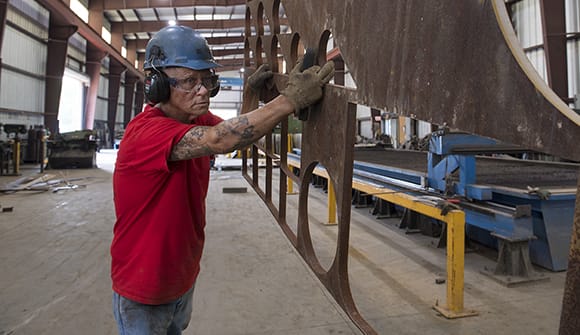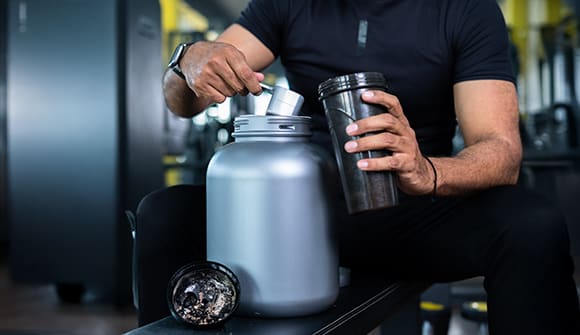Much-needed repairs
Mechanic back to work after undergoing deep vein surgery.
Article Author: Johnny Woodhouse
Article Date:

Gordon Roberts had been suffering from pain and swelling in his right leg for more than a month but thought he could work through it. But when his right leg suddenly went numb while driving home from work, the 62-year-old mechanic knew he needed medical help.
“I asked a friend of mine to take me straight to an emergency room,” he said. “When I got there, they couldn’t find a pulse in my leg. It had turned completely purple.”
Little did Roberts know, blood clots had formed in his leg causing deep vein thrombosis (DVT), a life-threatening condition that occurs when blood flow in veins slows down or becomes blocked. If left untreated, clots can break free and travel through the circulatory system, potentially shutting down a vital organ like the heart or the lungs.
“I could have died if any one of those clots would have let go,” Roberts said.
Gaining a leg up
After being prescribed blood-thinning medication to help dissolve the clots, Roberts had his sights set on returning to work, but the pain in his leg persisted to the point where he couldn’t even walk. That’s when he sought out more advanced treatment at Baptist Health.
“When blood clots in the legs are not responding to medicines, there are other minimally invasive options, such as surgically removing the clots and placing stents or balloons in the veins to keep them open and restore blood flow,” explained Nayan Agarwal, MD, FACC, an interventional cardiologist with Baptist Heart Specialists. “Chronic blood clots, like the ones Mr. Roberts had, are very tough to remove. That was the biggest challenge in his case.”
Dr. Agarwal used a special surgical catheter to collect and remove blood clots in three of Roberts’ veins, including the inferior vena cava (IVC), the largest vein in the human body. He also inserted a device within the IVC to prevent any blood clots from migrating to the lungs.
After removing the blood clots, Dr. Agarwal placed stents in Roberts’ veins to open any residual blockages.
The surgery, which was performed in a specialized operating suite known as the cardiac catheterization lab at Baptist Medical Center South, took several hours. Dr. Agarwal, who is director of the catheterization lab at Baptist South, was assisted by interventional cardiologist Bharat Gummadi, MD, FACC. Afterward, Roberts spent one day recovering before being discharged.
“I returned to work the following week. Everybody there couldn’t believe I was back,” said Roberts, whose maintenance job at the scrap yard includes crawling along conveyor belts and climbing ladders to change oil and replace filters on large cranes. “I’m usually on my feet all day. I need my legs to work properly.”
‘There’s a fix for this’
According to the Centers for Disease Control and Prevention, as many as 900,000 people could be affected by DVT each year in the United States. Risk factors include being sedentary due to bed rest or sitting too long without moving. People with a family history of blood clots are also susceptible to forming a thrombosis.
Dr. Agarwal said Roberts may have had a congenital (present at birth) condition that caused a large vein in his abdomen to become blocked over time or he may have a rare vascular anomaly that makes him prone to forming blood clots. Going forward, Roberts, who now takes blood thinners, will need to be evaluated every six months to make sure he’s not forming any additional clots.
“There’s always a risk for that, but if we find another clot, I can go in right away and remove it before it has a chance to become any larger,” Dr. Agarwal added. “People should know there’s a fix for this complex venous condition.”
Had he not had surgery, Roberts, who works 60 hours a week, was destined for early retirement.
“If I had waited any longer to seek treatment, I could have lost my leg and that would have been the end of my career,” he said. “I’m a single dad raising a 10-year-old daughter, so quitting is out of the question.”
Interventional cardiologists with Baptist Heart Specialists are committed to delivering the highest standard of care every step of the way. To learn more, visit baptistjax.com/heart or call 904.720.0799.



